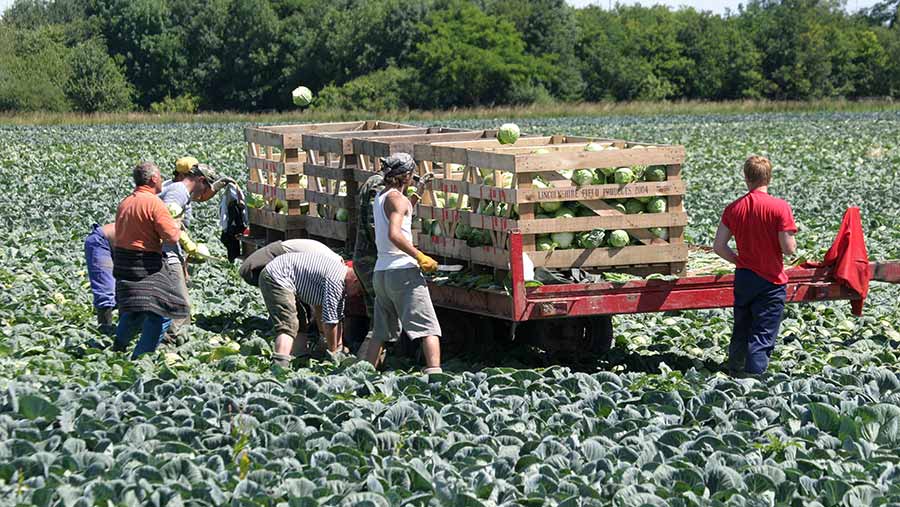Defra launches new inquiry into labour shortages
 © Tim Scrivener
© Tim Scrivener A new independent review into labour shortages in the food supply chain has been launched by Defra, in fulfilment of a pledge in the government’s recently published Food Strategy, which aims to reduce the sector’s reliance on migrant labour.
Focus points will centre on the challenges facing food and farming businesses in recruiting and retaining the labour they require, and will also look at the role of automation, domestic employment and migration routes.
See also: Long-term Seasonal Workers Scheme vital, concludes review
Defra secretary George Eustice said labour availability was a key issue for British farmers and farming, and the report would give the government a vital insight into how to address it in future.
Chairing the review is John Shropshire, the former chief executive of G’s Fresh Group. He will be supported by a panel of six industry experts from various parts of the supply chain (see below).
Who will be conducting the review?
Chair
- John Shropshire OBE – former chief executive of G’s Fresh Group
Expert panel
- Fiona Dawson CBE – non-executive director at M&S, Lego Group, and Kerry Group
- Martin Ford – technical and sustainability director at Greencore UK
- Mark Greet – former managing director at Falfish
- William Kendall – conventional and organic farmer, and food entrepreneur involved with brands such as New Covent Garden Soup Co, Green & Black’s and Cawston Press.
- Dr David Llewellyn CBE – former vice-chancellor of Harper Adams University
- Helen Sisson – group technical director at 2 Sisters Food Group
Annual crisis
Jack Ward, chief executive of the British Growers Association, said the review was a step in the right direction.
“We have got to move away from this annual crisis situation that we all go through – it’s incredibly frustrating and stressful for growers not knowing whether they have got the right number of staff to pick the crops that they are putting in the ground.”
Mr Ward cautioned that, while automation in crop harvesting was certainly a future development, it was not an immediate remedy to the labour crisis.
“We know that there may well be robotic, automated solutions on the horizon, but they are not available here and now. These labour shortages can’t simply be mopped up by a high-tech approach that currently does not exist. In the meantime, we still have to get produce from the field on to a retailer’s shelf, and to consumers.”
NFU deputy president Tom Bradshaw also welcomed the review, hoping it would act as a catalyst for government “to ensure the food supply chain has the workforce it needs to continue producing, picking, packing and processing high quality, affordable and sustainable food for the nation”.
“Farmers and growers are seriously concerned about how they will get the workforce they need right now,” he said. “This review cannot overlook the immediate and pressing issues the food supply chain is facing as we speak.”
Measures taken
The government says it has already introduced some measures to remedy the situation, such as extending the Seasonal Worker Scheme until the end of 2024 and making 10,000 extra visas available, although it admits this is not a long-term solution.
The finalised report will be published in 2023, with a government response to follow.
